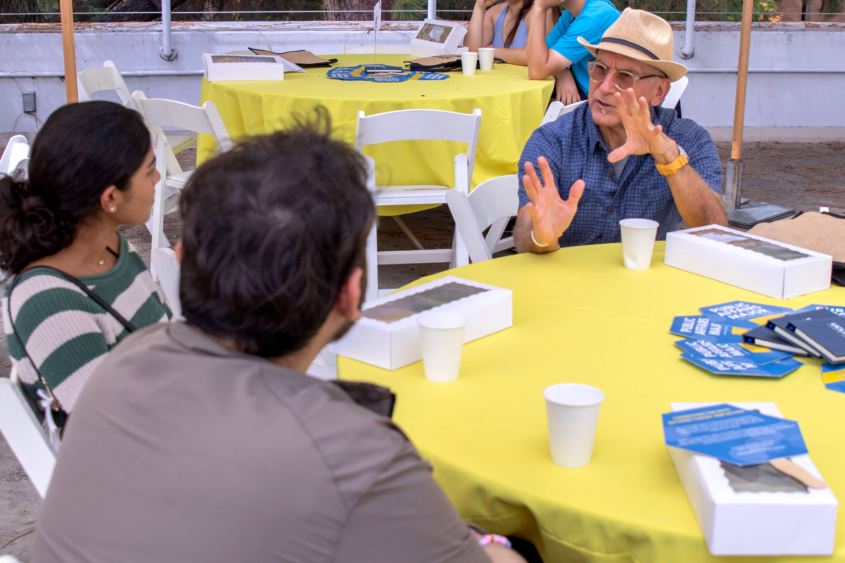
‘Retirement Is Not Retreating; It’s Changing Gears’ Now a professor emeritus, Social Welfare's Mark Kaplan continues to teach and serve the UCLA community
By Stan Paul
Mark S. Kaplan, professor emeritus of social welfare, officially retired earlier this year, but, for now, he is busier than ever.
“Retirement is not retreating; it’s changing gears,” explained Kaplan, an avid cyclist. “It’s more leaving one set of activities and moving toward new adventures.”
He is still teaching, conducting research, applying for grants, including from the National Institutes of Health, mentoring students, and continuing to mentor and collaborate with former students who have become successful scholars and colleagues over the years. He’ll also take on a campuswide faculty committee post or two, including chairing UCLA’s Academic Senate Grievance Advisory Committee for 2023-24.
Kaplan, a faculty member at UCLA Luskin for the past decade, has devoted his career to public health issues, most notably suicide and gun violence in the United States and globally.
“Throughout his career, Mark tirelessly devoted himself to unraveling the complex dynamics surrounding suicide, substance use, and gender and firearm violence,” said Social Welfare chair Laura Abrams at a retirement celebration/roast held for Kaplan over the summer. “His unwavering dedication to these critical areas of public health and social work has significantly contributed to our collective knowledge, prevention strategies and policy advancements in addressing these pressing concerns.”
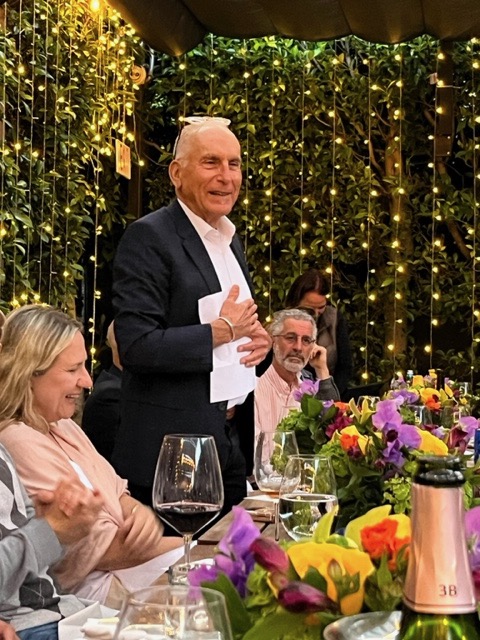
Kaplan thanks his colleagues from UCLA Luskin Social Welfare at a retirement dinner/roast. Photo by Ananya Roy
Kaplan, also a dedicated ukulele player, says his retirement also comes with a few strings attached.
“I’m actually working with more undergraduate public affairs students than ever before, including honors thesis projects,” he said.
In addition, he will be teaching his popular course on preventing firearm violence, now approved for distance (online) learning. Kaplan said the format has allowed him to bring in a wider array of guest speakers on timely topics who are unable to travel to campus.
Of one of his frequent guests, he said, “We don’t see eye-to-eye on anything. But it is a very civil conversation, and most students very much appreciate the diversity of points of view and hearing different voices in this highly polarized area.”
Since going online in winter 2021, the course has received positive feedback from students, who voted to keep the course fully online in winter 2022, even after UCLA had returned to in-person instruction.
“There’s no other place in the country that I know of that has a permanent course on gun violence,” Kaplan said. Launched in the wake of a 2016 shooting on the UCLA campus, the course has been consistently filled, and student interest has only grown. “What is important is that it has evolved over time. It keeps getting better, so I am committed to that course,” he said.
Kaplan has received a number of awards throughout his career, including the Distinguished Investigator Award from the American Foundation for Suicide Prevention. He has contributed to state and federal suicide prevention initiatives and has testified before the Senate Special Committee on Aging at a hearing on veterans’ health. He has also served as an advisor to the U.S. Department of Veterans Affairs, the Centers for Disease Control and Prevention, the American Foundation for Suicide Prevention, and the National Institute on Alcohol Abuse and Alcoholism. Kaplan also has advocated for including of gun violence prevention as one of the Grand Challenges in Social Work, which he said was recently approved.
At UCLA, Kaplan has been a faculty affiliate with the university’s California Center for Population Research. Academic posts before coming to UCLA have included Portland State University, the University of Illinois at Urbana-Champaign and the University of Oregon.
The four-time Fulbright awardee recently received an award from the Fulbright Specialist Program to help faculty at the Universidad Carlos III de Madrid maximize the global impact of their research. He also has his eye on new research opportunities in Canada, where he has been affiliated with the Canadian Institute for Substance Use Research at the University of Victoria in British Columbia.
Kaplan, whose research has been widely published, is a frequent contributor to media seeking his expertise, including through op-ed pieces. He plans to expand on that effort to help the next generation of scholars improve their citation record of scholarship and their overall visibility and impact.
“I’ve been intrigued by that. How do you engage the readers more? It doesn’t happen in an organic way.”
And although Kaplan has made some time for cycling in the Pacific Northwest and a trip to Guatemala, where he grew up, he also plans to continue collaborating with Luskin School faculty, staff and students.
So, for now, Kaplan is staying local.
“It’s not one transition. It is a series of transitions for me,” he said. “And there will be unexpected twists and turns along the way.”

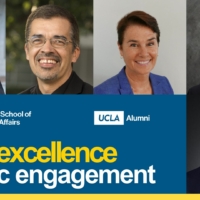
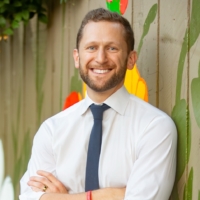
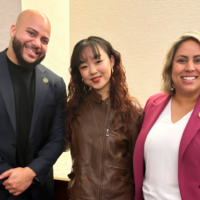




Leave a Reply
Want to join the discussion?Feel free to contribute!